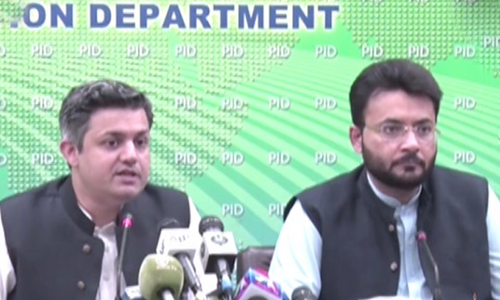LAHORE: Continuous ban on the provision of new gas connections is not only irking the consumers but also increasing the backlog of the Sui Northern Gas Pipelines Limited (SNGPL). The situation may worsen as there is no hope of lifting the ban by the government keeping in view the depleting indigenous gas reserves, increasing dependency on the import of Liquefied Natural Gas (LNG) and other technical and administrative issues.
“While there is no gas, how can we give new connections? But despite all this, we gave new connections in last fiscal year in a bid to reduce the backlog,” SNGPL’s managing director Ali J Hamdani told Dawn. A delay in the finalization of the new gas tariffs for domestic consumers is also causing the ban.
According to him, the company used to provide imported LNG after regasification, which costs too much, to consumers at cheaper rates besides providing the system gas (indigenous gas). This forced the authorities to work out a new price formula for domestic consumers. “The work on this issue has almost been done by the quarters concerned,” he added.
Presently, the existing backlog has reached 2.8 million applications for new gas connections. These include those seeking gas connections in the urgent category through deposition of Rs25,000 urgent connection fee. Keeping in view this, the company, which couldn’t achieve its target of providing 300,000 new connections during the last fiscal year from July 2021 to June 2022, may not be able to achieve its target of providing 300,000 connections — most of them domestic — to the consumers during the ongoing financial year (July 22 to June 2023) due to moratorium, which was imposed in December 2021 till March 2022 in a bid to maintaining gas supplies to domestic consumers in the winter.
The SNGPL earlier asked the Oil & Gas Regulatory Authority (Ogra) last year to allow it to spend Rs46.5bn on the execution of several development schemes, including 300,000 new gas connections to domestic consumers during the fiscal year ending on June 30, 2022. In its earlier estimated revenue requirement (ERR), the company planned to provide 1.2m new connections during financial 22. However, later, through the review of the estimated revenue requirement (RERR 2021-22) submitted to the regulator in November, it decided to provide new connections to, at least, the consumers who have already paid requisite fees (including urgent cases). Those who already paid fees are approximately 300,000. The estimated cost of providing 300,000 connections is Rs5.2bn. In August last, the SNGPL in a briefing told the participants that its regasified liquefied natural gas (RLNG) consumption has reached 55pc of the total supplies due to a massive decline in the indigenous supplies, resulting in more dependence on the RLNG. It also referred to the government’s plan of introducing the weighted average cost of gas, which, the company claimed, would mitigate and reduce the high price of the RLNG for the public.
In a briefing on Aug 26, 2022, the company management disclosed that due to depleting indigenous gas resources, the RLNG now has a share in gas supplies continuing to rise. It also told the participants that it is aware of RLNG’s short supply owing to various global and regional dynamics and hence it is exploring alternative options to mitigate energy shortfall. On the other hand, the non-provision of gas connections for a long time has irked the applicants seeking new connections either under the urgent or normal fee category.
“I gave application many months ago. I also tried hard to go for the urgent category, but to no avail,” deplored an applicant.
“Like me, there are many who have applied. But it seems we will not have new connections.”
Published in Dawn, September 12th, 2022











































